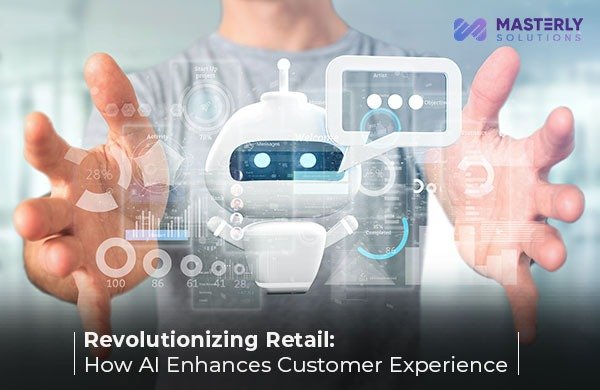
In today’s fast-paced digital world, artificial intelligence (AI) is transforming the retail landscape. By enhancing customer experience, AI-driven solutions are not just a luxury but a necessity for retailers looking to thrive. This blog post explores the myriad ways in which AI enhances is reshaping the retail industry, from personalized shopping experiences to efficient operational management.
AI-Powered Retail Solutions: A Game Changer
Retail AI solutions are redefining how businesses interact with customers. Chatbots, for example, offer 24/7 customer service, handling inquiries and providing personalized recommendations. AI-driven recommendation engines analyze customer data to suggest products, significantly increasing the chances of a sale.
Machine Learning and Predictive Analytics: The Retail Forecasting Revolution
Machine learning algorithms in retail are predicting consumer behavior with unprecedented accuracy. By analyzing past purchasing patterns, retailers can forecast future demand, optimize stock levels, and even anticipate market trends. This predictive power of AI ensures that businesses stay ahead of the curve.
Personalization: The Heart of Retail AI
The true essence of AI in retail lies in its ability to personalize. AI analyzes vast amounts of data to offer a tailored shopping experience for each customer. From personalized marketing emails to custom product recommendations, AI ensures that every interaction is unique and relevant.
Strategic AI: Driving Retail Success
AI is not just about customer-facing applications; it’s also revolutionizing backend operations. AI-driven strategies like dynamic pricing and automated inventory management help retailers operate more efficiently, reducing costs and increasing profitability.
Retail Technology Innovations Beyond the Storefront
The impact of AI in retail extends beyond physical stores. In e-commerce, AI tools analyze browsing patterns to optimize website layouts and improve the online shopping experience. Mobile apps with AI capabilities provide seamless shopping experiences, enhancing customer engagement and loyalty.
AI Retail Analytics: Decoding Customer Insights
Retail analytics powered by AI offer deep insights into customer preferences and behavior. This data-driven approach allows retailers to make informed decisions, tailor their marketing strategies, and create more engaging customer experiences.
Efficient Retail Operations through AI
AI enhances is streamlining retail operations like never before. From supply chain optimization to predictive maintenance of equipment, AI-driven solutions are making retail operations more efficient and cost-effective.
Embracing Digital Transformation in Retail
The integration of AI in retail is a significant part of the industry’s digital transformation. While the adoption of these technologies comes with challenges, the opportunities they present are immense. Retailers who embrace AI are set to lead the market in innovation and customer satisfaction.
Conclusion
AI in retail is no longer just a futuristic concept; it’s a present-day reality that’s enhancing every aspect of the customer experience. From personalized shopping journeys to efficient operational management, AI is the driving force behind a new era of retail innovation.
